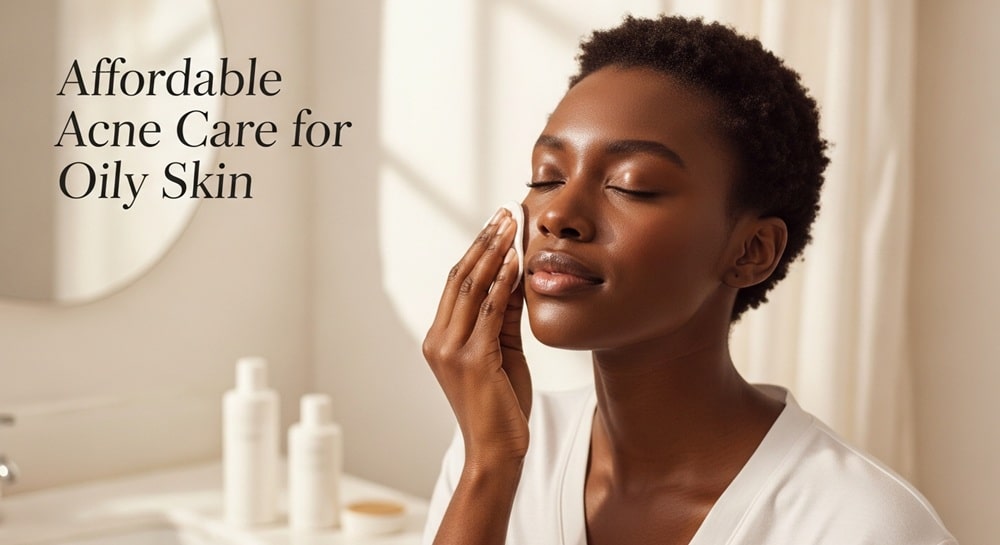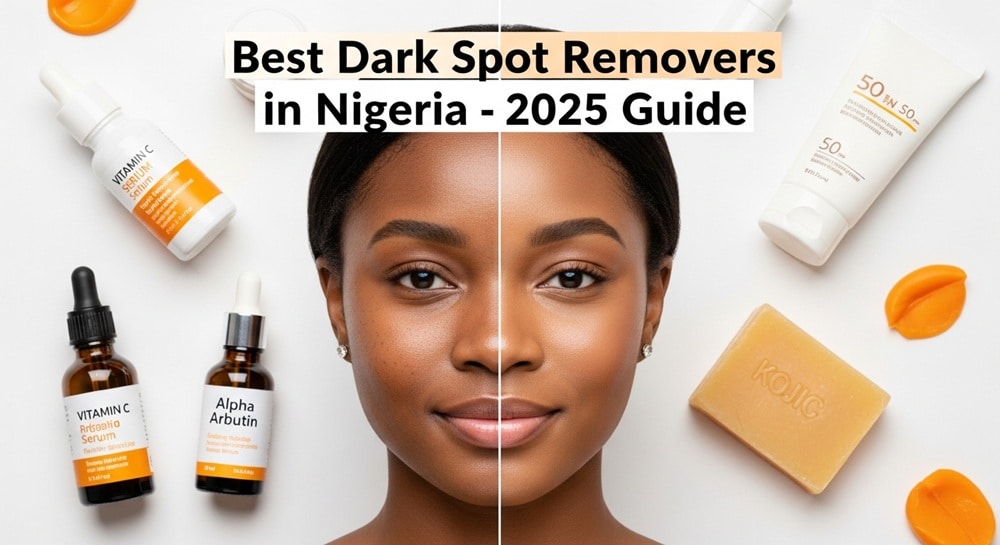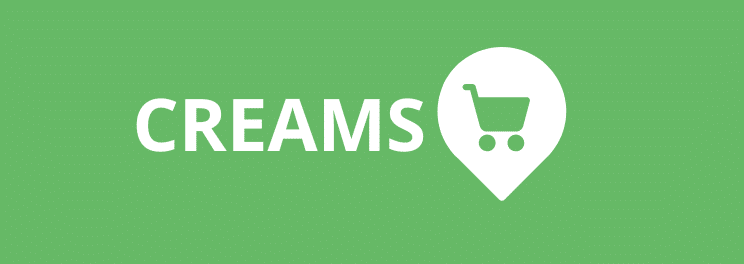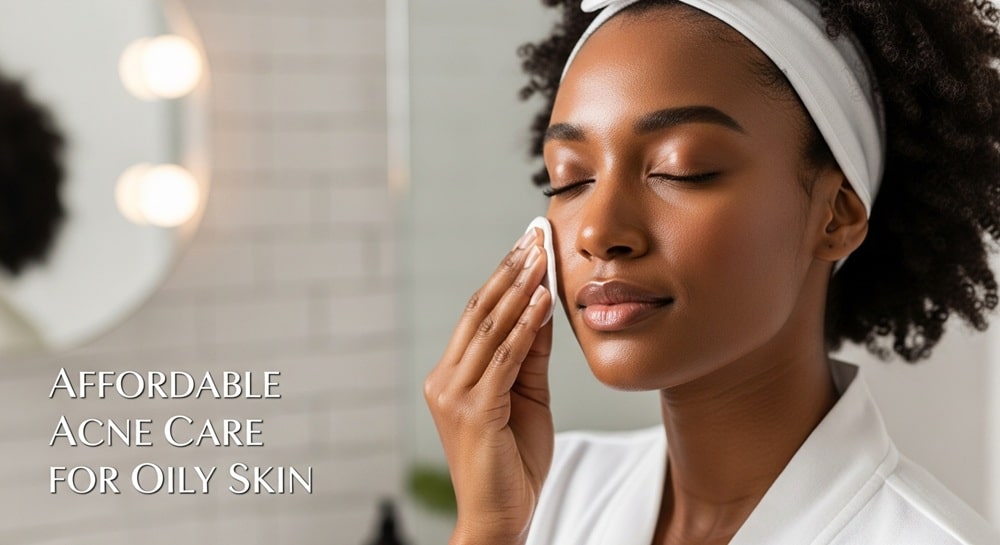Tubes, Body Creams, Body lotions, Body Soaps, Body Wash, Facial Cleansers, Serums & Oil, Toners
Affordable Acne Treatments in Nigeria
Affordable Acne Treatments in Nigeria
I. Introduction: Why Affordable Acne Treatment Matters in Nigeria
Acne is one of the most common skin concerns in Nigeria, affecting millions of teenagers, young adults, and even older adults who still struggle with occasional breakouts. From Lagos to Abuja and across West Africa, many people deal with the emotional and physical effects of acne—pimples, blackheads, whiteheads, cysts, and the stubborn dark spots that follow.
Nigeria’s unique climate plays a significant role in this problem. The combination of intense heat, humidity, sweat, dust, and pollution creates the perfect environment for clogged pores and excessive oil production. Add stress, hormonal imbalance, inconsistent skincare routines, and harsh products, and acne becomes more than a small inconvenience — it becomes a constant battle.
Yet one major misconception persists:
“You need expensive skincare products to treat acne properly.”
This is false.
The truth is that many affordable, dermatologist-approved acne treatments exist in Nigeria — and they work extremely well when used consistently. You don’t have to spend ₦30,000 on a cleanser or ₦50,000 on serum to see real improvements.
Whether you’re a student on a budget, a parent managing multiple expenses, or simply someone who wants effective results without overspending, this guide is designed for you.
In this comprehensive article, you’ll discover:
- The major causes of acne among Nigerians
- Dermatologist-approved affordable ingredients that treat pimples
- Budget-friendly cleansers, toners, serums, moisturizers, and spot treatments
- How to create an acne routine for under ₦10,000
- Natural remedies that actually work
- Dos and don’ts for preventing breakouts
- Where to buy original and affordable acne products in Nigeria
Everything here is written to help you make informed decisions and achieve clearer, healthier skin without breaking the bank.
Let’s begin.

Affordable Acne Treatments in Nigeria:
II. Understanding Acne in Nigeria: Causes, Triggers & Skin Types
Acne does not happen randomly. Understanding the root causes helps you choose the right treatment and avoid products that worsen breakouts.
A. Why Acne Is So Common Among Nigerians
1. Hot and Humid Climate
Nigeria’s climate increases sweat and oil production. Sweat mixes with dirt and dust, leading to clogged pores and inflammation.
2. Pollution and Dust
In cities like Lagos and Port Harcourt, pollution is a daily part of life. Dirt settles on the skin and mixes with oil, creating a breeding ground for bacteria.
3. Stressful Lifestyles
Work stress, school pressure, and financial worries can lead to hormonal changes that trigger acne.
4. Heavy or Harsh Skincare Products
Many Nigerians use thick creams, bleaching creams, or petroleum-based products that clog pores.
5. Hormonal Fluctuations
Teenagers, young adults, pregnant women, and people experiencing menstrual cycles often get hormonal acne around the cheeks, chin, and jawline.
B. Common Causes of Acne in Nigerians
Here are the most common triggers:
- Excess oil (sebum) production
- Clogged pores from sweat, sunscreen, makeup, or dirt
- Hormonal imbalances
- Diet high in sugar, fried foods, dairy, and soda
- Using comedogenic (pore-clogging) skincare or hair products
- Bacterial growth (Cutibacterium acnes)
- Not washing pillowcases, scarves, and towels regularly
- Touching your face frequently
- Over-exfoliation and product misuse
C. Types of Acne Common in Nigeria
Understanding your acne type helps you choose the right products.
1. Blackheads (Open Comedones)
Caused by clogged pores exposed to air; appear black.
2. Whiteheads (Closed Comedones)
Pores blocked beneath the skin’s surface.
3. Papules and Pustules
Small red bumps, sometimes with pus.
4. Cystic Acne
Deep, painful lumps beneath the skin. Requires careful treatment (but still manageable with affordable options).
5. Post-Inflammatory Hyperpigmentation (Dark Spots)
Extremely common among Nigerians. Any tiny pimple can leave a mark. This is not a scar; it’s excess melanin production.
Affordable Acne Treatments in Nigeria:

III. Essential Acne-Fighting Ingredients to Look for (Affordable & Effective)
When choosing affordable acne treatments, you must focus on ingredients, not brands.
Here are the most important ingredients recommended by dermatologists:
1. Salicylic Acid (BHA)
What It Does:
- Unclogs pores
- Reduces oil
- Removes dead skin cells
- Prevents blackheads and whiteheads
Ideal For:
Oily and combination skin.
Affordable Products With Salicylic Acid:
- Clean & Clear Foaming Wash
- Beauty Formulas Salicylic Wash
2. Benzoyl Peroxide
What It Does:
- Kills acne-causing bacteria
- Reduces inflammation
- Works for whiteheads, pustules, and active pimples
Important:
Start with low concentration to avoid irritation.
3. Niacinamide
What It Does:
- Controls oil
- Reduces redness and inflammation
- Helps fade dark spots
- Strengthens skin barrier
Why Nigerians Love It:
It is gentle but extremely effective.
4. Tea Tree Oil
A natural antibacterial ingredient great for:
- Spot treating active pimples
- Reducing inflammation
- Calming redness
5. Sulfur
What It Does:
- Absorbs excess oil
- Dries out active breakouts
- Works well for combination and oily skin
6. Retinoids (Adapalene, Retinol)
What They Do:
- Prevent future breakouts
- Help with dark spots
- Improve overall skin texture
Note:
Use only at night. Beginners should use retinol options first.
7. AHAs (Glycolic Acid, Lactic Acid)
Benefits:
- Fade dark spots
- Remove dead skin
- Improve complexion
Important:
Use 2–3 times a week.
Affordable Acne Treatments in Nigeria:
IV. Best Affordable Acne Products in Nigeria (With Prices & Skin Type Recommendations)
Below is a curated list of budget-friendly, original, and effective acne products available in Nigeria.
Prices are approximate and may vary slightly depending on location.
A. Cleansers (₦2,500 – ₦4,500)
1. Clean & Clear Foaming Facial Wash – ₦3,000
- Controls oil
- Gentle on acne-prone skin
- Best for teens and students
2. Simple Refreshing Facial Wash – ₦3,200
- No fragrance, no alcohol
- Ideal for sensitive skin
3. Dr. Rashel Anti-Acne Face Wash – ₦3,800
- Contains tea tree
- Reduces active pimples quickly
4. Beauty Formulas Tea Tree Face Wash – ₦3,000
- Prevents future breakouts
5. Neutrogena Oil-Free Wash (Mini) – ₦4,500
- Dermatologist-approved
- Long-time Nigerian favorite
B. Toners & Exfoliants (₦3,000 – ₦6,500)
1. Clear Essence Astringent – ₦3,000
- Affordable and effective for oily skin
2. Garnier Micellar Water (Anti-Acne) – ₦4,200
- Removes sweat and makeup without stripping skin
3. The Ordinary Glycolic Acid Toner – ₦6,500
- Great for dark spots
- Use only at night
4. Good Molecules Niacinamide Toner – ₦5,000
- Reduces oil & clears clogged pores
C. Serums & Treatments (₦3,000 – ₦5,000)
1. The Ordinary Niacinamide + Zinc – ₦5,000
- Best for oily or combination skin
- Minimizes pores
2. Dr. Rashel Tea Tree Serum – ₦4,800
- Calms angry pimples
3. COSRX Acne Pimple Master Patch – ₦3,000
- Removes pus overnight
- Prevents scarring
4. Skin Doctor Acne Serum – ₦3,500
- Great budget option for daily use
5. Disaar Vitamin C Serum – ₦3,200
- Helps fade dark marks after acne
D. Moisturizers (₦3,000 – ₦4,500)
1. Simple Oil-Free Moisturizer – ₦3,500
- Light, hydrating, perfect for oily skin
2. Neutrogena Hydro Boost Gel (Mini) – ₦4,500
- Oil-free gel
- Excellent for dry or combination skin
3. CeraVe PM Mini – ₦5,000
- Great for strengthening the skin barrier
E. Spot Treatments (₦2,800 – ₦3,500)
1. Clean & Clear Advantage Spot Treatment – ₦3,500
- Works fast on active pimples
2. Skin Doctor Acne & Spot Cream – ₦3,000
- Great budget option
3. Tea Tree Spot Gel – ₦2,800
- Good for occasional breakouts
F. Sunscreens (₦3,000 – ₦4,500)
Absolutely essential for acne and dark spots.
1. Skin Doctor Sunblock SPF 50 – ₦3,500
- Non-greasy
- Affordable
2. Dr. Rashel Sunscreen Gel – ₦3,600
- Lightweight gel texture
3. Neutrogena Ultra Sheer (Mini) – ₦4,500
- Trusted global brand
Affordable Acne Treatments in Nigeria:
V. Affordable Acne Skincare Routine (Morning + Night)
Consistency is the most important factor in acne treatment.
Below is a routine that works for nearly all skin types.
A. Morning Routine (Simple & Affordable)
- Cleanser
Use a gentle foaming cleanser. - Toner (Optional)
If oily or acne-prone. - Niacinamide Serum
Controls oil & reduces inflammation. - Moisturizer
Choose a lightweight, oil-free formula. - Sunscreen (Mandatory)
Prevents dark spots & protects skin.
B. Night Routine (Repair & Treatment Focus)
- Cleanser
Remove dirt, sweat, makeup, and sunscreen. - Exfoliating Toner (2–3× Weekly)
Use glycolic acid or lactic acid. - Treatment or Serum
- Tea tree serum
- Niacinamide
- Retinol (for advanced users)
- Moisturizer
Hydrate and repair the skin barrier.
C. Acne Routine on a Budget (Under ₦10,000)
If you’re tight on cash:
- Cleanser – ₦3,000
- Niacinamide serum – ₦3,500
- Moisturizer – ₦3,000
TOTAL: ₦9,500
This simple routine can drastically reduce acne in 6–8 weeks.
Affordable Acne Treatments in Nigeria:
VI. Natural & DIY Remedies Nigerians Can Use (Safe & Cheap)
Not all natural remedies are effective, but these ones are safe and backed by science — if used correctly.
1. Aloe Vera Gel
- Soothes redness
- Calms inflammation
- Hydrates acne-prone skin
Great for people with sensitive skin.
2. Raw Honey
- Antibacterial
- Heals active pimples
- Reduces infection
Apply as a mask 1–2 times weekly.
3. Turmeric + Honey Mask
- Reduces inflammation
- Brightens dark spots
Do not use turmeric daily.
4. Green Tea Toner
- Antioxidant-rich
- Reduces oil production
Boil green tea, cool, apply with cotton.
5. DIYs to Avoid
- Lemon juice (too acidic)
- Toothpaste (damages skin barrier)
- Sugar scrubs (too abrasive)
Affordable Acne Treatments in Nigeria:
VII. Dos & Don’ts of Treating Acne in Nigeria
Following these can speed up your results.
DO:
✔ Use non-comedogenic products
✔ Wash pillowcases weekly
✔ Drink plenty of water
✔ Clean your phone screen
✔ Use sunscreen daily
✔ Be consistent
DON’T:
✖ Pop or squeeze pimples
✖ Sleep with makeup on
✖ Mix too many actives
✖ Use bleaching creams
✖ Over-exfoliate
✖ Touch your face during the day
Affordable Acne Treatments in Nigeria:
VIII. Where to Buy Affordable Acne Products in Nigeria
Buying original skincare products in Nigeria can be tricky due to counterfeits. That’s why choosing trusted online stores is crucial.
A. creams.ng — #1 for Affordable & Original Acne Products
Why Nigerians trust creams.ng:
- 100% original skincare
- Affordable prices
- Fast nationwide delivery
- Acne product bundles
- Wide selection of budget-friendly items
- Expert customer support
This is the best place to buy authentic acne products without fear of fakes.
B. Other Places:
- Jumia Nigeria
- Konga Nigeria
- Local pharmacies
- Beauty supply stores
But always ensure authenticity.
Affordable Acne Treatments in Nigeria:
IX. Expert Tips to Prevent Future Breakouts
To keep your skin consistently clear:
1. Clean your phone screen daily
Phones carry bacteria.
2. Avoid oily hair products
They transfer oil to your face.
3. Reduce high-sugar foods
Sugar increases inflammation.
4. Shower immediately after sweating
Sweat triggers body acne.
5. Avoid touching your face
Prevents bacteria transfer.
6. Manage stress
Stress hormones worsen acne.
X. Conclusion: Clear Skin Without Breaking the Bank
Acne may be frustrating, but it is manageable — even on a tight budget. With the right ingredients, consistent care, and access to affordable skincare, you can achieve clear, healthy skin without spending a fortune. Nigeria has a wide range of cost-effective products that work for every skin type, whether you battle whiteheads, blackheads, hormonal acne, or dark spots.
Remember:
Affordable does NOT mean ineffective.
What matters most is using the right products correctly and consistently.
If you’re ready to start your clearer skin journey, explore the collection of high-quality, affordable acne products available now on creams.ng. Each product listed in this guide is budget-friendly, effective, and safe for Nigerian skin.
👉 Visit creams.ng today and shop original acne treatments at the best prices in Nigeria.
Your clear skin journey starts now — without breaking the bank.


